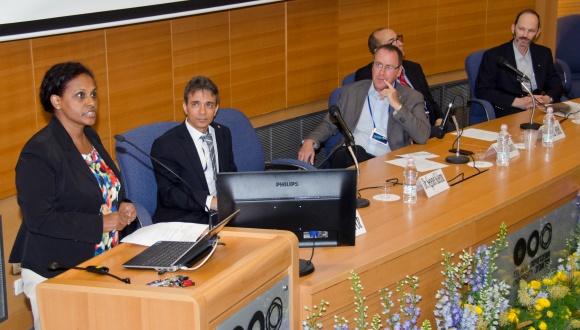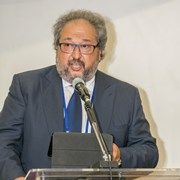BOG 2016: TAU Symposium Tackles Food Security from Different Angles
Food security can be achieved only through "global" thinking and collaboration, according to international experts who participated in a Symposium entitled "Transitioning the World into a More Sustainable and Food-Secure Future."
The symposium, which took place on Thursday May 19, was held during the 2016 Board of Governors Meeting. The panelists all specialize in food security through different disciplines, mirroring TAU's interdisciplinary approach to tackling this and other global challenges.
The facts are staggering: every 10 seconds a child dies of hunger. Yet, alongside hunger, researchers must broach global resource disparities, the panelists said.
Dr. Segenet Kelemu, Director General of the International Center for Insect Physiology and Ecology in Nairobi and a 2016 TAU Honorary Doctorate recipient, spoke about her research on insects and why eating them would solve many problems behind world hunger. As someone who has lived food security from tending the fields to managing world-class laboratories, Kelemu emphasized the importance of involving women in promoting food security.
Prof. Itai Sened, Director of TAU's newly-inaugurated Boris Mints Institute for Strategic Policy Solutions to Global Challenges, introduced the term "prosumer" and the need for producers to consume their own products because transport is too costly. Prof. Ohad Nir, Head of TAU's Manna Center Program in Food Safety and Security, stressed the need to bring knowledge from the field to the policy level.
Sharing a personal anecdote on the path that led him from being a kibbutz tractor driver to a plant biologist, Prof. Daniel Chaimovitz, Dean of the George S. Wise Faculty of Life Sciences and former head of the Manna Center, highlighted Israel's potential leadership role in advancing global food security. TAU, he said, is the ideal launching pad for this endeavor because there are many people who study food, all on the same campus.






